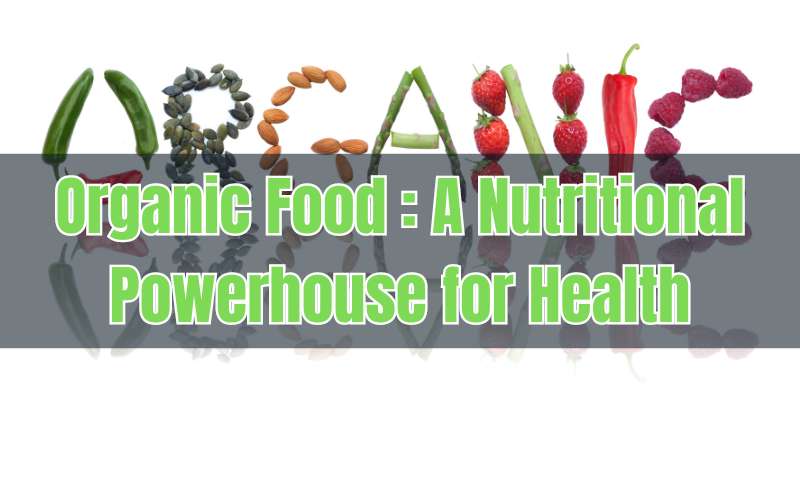Introduction:
Organic food: In recent years, the popularity has soared as more people become aware of its potential health benefits. But what exactly makes organic food a nutritional powerhouse, and how does it impact our overall health? In this article, we’ll delve into the science behind organic food and explore its significant contributions to our well-being.
Organic Food: A Definition
Organic food refers to produce and other agricultural products that are grown and processed. Without the use of synthetic pesticides, fertilizers, genetically modified organisms (GMOs), or other artificial additives.
Instead, organic farming practices prioritize sustainable methods such as crop rotation, composting, and biological pest control to maintain soil health and support biodiversity.
Nutritional Superiority of Organic Food
Numerous studies have demonstrated that organic food tends to be richer in essential nutrients compared to conventionally grown counterparts. For instance, organic fruits and vegetables often contain higher levels of vitamins, minerals, antioxidants, and beneficial phytochemicals. This is attributed to the healthier soil conditions and natural farming practices employed in organic agriculture, which enhance nutrient uptake by plants and promote overall plant vitality.
Impact on Overall Health
The nutritional density of organic food translates into tangible health benefits for consumers. By choosing organic options, individuals can:
1. Boost Immune Function:
The abundance of antioxidants found helps strengthen the immune system, making the body more resilient to infections and diseases.
2. Support Digestive Health:
Organic foods are free from synthetic additives and pesticides, making them easier to digest and reducing the risk of gastrointestinal issues.
3. Reduce Exposure to Harmful Chemicals:
By avoiding synthetic pesticides and fertilizers commonly used in conventional agriculture, consumers can lower their intake of potentially harmful chemicals linked to adverse health effects.
4. Promote Heart Health:
Organic diets rich in fruits, vegetables, and whole grains have been associated with a reduced risk of heart disease and stroke, thanks to their high fiber content and heart-healthy nutrients.
5. Enhance Overall Well-Being:
Consuming nutrient-dense can lead to increased energy levels, improved mental clarity, and a greater sense of vitality and well-being.
Conclusion
In conclusion, organic food stands out as a nutritional powerhouse with far-reaching implications for our health and well-being. By opting for organic choices whenever possible, we not only support sustainable farming practices but also nourish our bodies with wholesome, nutrient-rich foods that promote optimal health. As awareness grows and accessibility improves, embracing the benefits is a proactive step toward a healthier and more vibrant future.
Know more about author: Prince Khanuja And Khanuja Group




